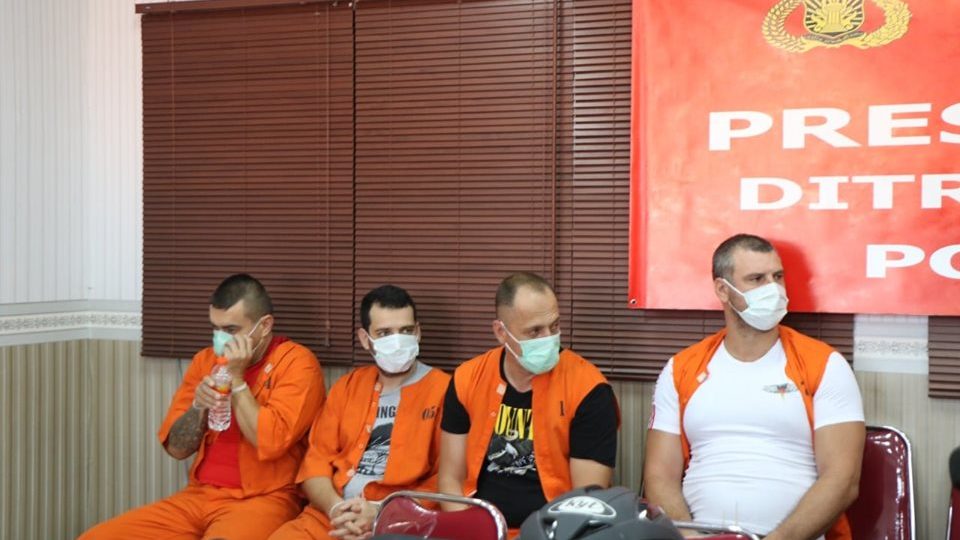Bali Police have arrested four Bulgarian nationals allegedly connected to several ATM skimming attempts on the island.
In a statement, police identified the suspects as Stoyanov Georgi Ivanov (43), Filip Aleksandrov (45), Boycho Angelov (41) and Stoyan Vladimirov (37).
Police, without specifically identifying the suspects, said one of them were caught in the act after surveillance cameras allegedly showed him taking apart and attaching a device into an ATM machine. This turned out to be a hidden camera, which were supposedly used to conduct ATM skimming.
Police officers then kept surveillance on the ATM machine and was able to make the arrest when he returned to the scene of the alleged crime.
Meanwhile, three other suspects were caught after police launched an investigation following a tip-off from one of the local banks. According to the bank, a number of foreigners have been making illegal transactions on their ATM machines in Denpasar and other areas.
The investigation led authorities to the suspects’ accommodation in Sanur, where police seized a number of fake ATM cards which were later found to have allegedly been used for illegal transactions. They were shortly arrested.
At a press conference in Denpasar yesterday, Police Commissioner Yuliar Kus Nugroho, who heads Bali Police’s criminal investigation unit, said the suspect from the first case claimed he didn’t know the other suspects.
“From our investigation, the suspects said they did not know each other, but officers are still looking if they might be linked somehow,” Yuliar said, as quoted in a statement.
Bali has a pretty bad rap for ATM skimming, and this latest case involving Bulgarian nationals is certainly not the first. Earlier in May, two Bulgarian nationals were arrested in connection with ATM skimming after local residents in Nusa Penida allegedly caught them in the act and brought them to the police.
This time around, police seized 20 fake debit and credit cards, IDR50 million (US$3,564) and €5,285 (US$ 5,832) in cash and a currency counter, among other things.
Under Indonesia’s Information and Electronic Transactions Law (UU ITE), the suspects individually face up to eight years in prison.




